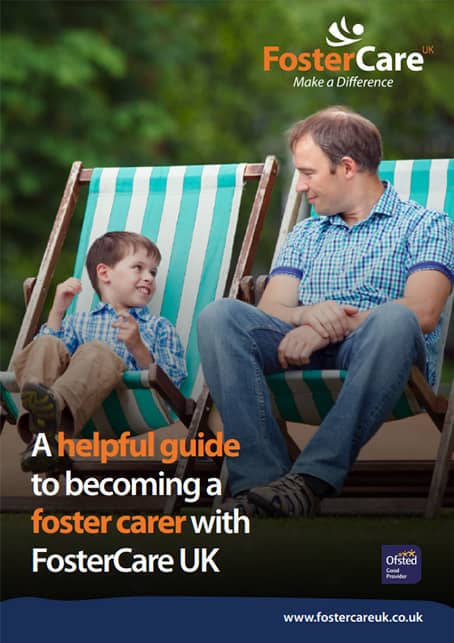


What happens when a child is taken into care?
Benefits of being a foster parent
What is a care leaver?
How to become a foster parent
How to foster a child
What are the foster care requirements
Can I choose who I foster?
Fostering with pets FAQ
How long does it take to become a foster parent?
What is the role of an independent fostering agency?
Fostering a disabled child
Tips for coping when foster placements end
Do foster carers pay tax?
What to expect in a fostering assessment
Common Fostering Challenges and Solutions
What disqualifies you from being a foster carer?
Muslim Fostering
Fostering as a single parent
Can you foster a child with a criminal record?
Can you work and foster?
Top 10 fostering myths
Can I foster if…?
Can I foster and rent?
LGBT Fostering: can I foster if I’m gay
Top transferable skills to become a foster carer
Can you foster with a mental health condition?
Christian Fostering
Sikh Fostering
Cultural Diversity in Foster Care
How to encourage foster children to read
Reasons for a child to be taken into care
Tips for coping with attachment disorders in Foster Children
Fostering vs Adoption
What happens when foster parents get divorced?
What is reunification in foster care?
How to deal with foster child bullying
A guide to the foster care handbook
Guide to fostering young children
Types of self-harm
A guide to fostering teenagers
What are the signs of depression in foster children?
As a foster carer, you may face many challenges on your fostering journey that are difficult to navigate. Self-harming is an issue that can affect children in many ways, for a number of reasons. As a foster carer, it can be upsetting to learn that your foster child may be struggling with this, and you may not know where to start to try and tackle it.
In this guide, we outline this difficult topic to help give you a better understanding of what it is, how it happens and how you can help and support your foster children.
Self-harming is a way in which a child copes with negative feelings and difficult experiences. It’s not usually an attempt at suicide or a cry for help, although people who self-harm often find it provides temporary relief for their overwhelming negative feelings and thoughts. This brief relief of pressure is seen as a way of controlling negative feelings on a day-to-day basis, but is then replaced with further feelings of guilt or pressure – which is how the cycle continues.
There are different behaviours that can be seen as self-harm. These are typically broken down into two categories, physical and emotional self-harm.
Types of physical self-harm can include:
Types of emotional self-harm can include:
Self-harming typically has an underlying reason. For many foster children, negative experiences from their past or mental health conditions could impact why a young person may want to hurt themselves physically. Over time, self-harm can develop into a habit. Even if a child appears happy or seems to have overcome their issues, they may still be self-harming as a way of controlling their emotions to ensure their negative feelings do not return. Reasons why a child may self-harm can include:
Though some signs of self-harming may be visible in the form of scars and marks, it can be difficult to know when your foster child is hurting themselves. As self-harming isn’t usually done for attention, children who self-harm are more likely to cover-up any evidence. This makes spotting the signs difficult to point out. Below are some signs to be aware of if you suspect your child may be self-harming:
If you think your foster child is self-harming, it can be very difficult to know what to do. You may feel upset, confused or even angry, and wonder how you missed the signs. Similarly, if you only suspect that they’re harming themselves, you may not know how to approach them and offer the kind of help and support they need.
Below, we’ve listed some things that can help your child cope with self-harm, as well as the resources we’d recommend for additional help and advice.
If you suspect your child may be self-harming, you may find it difficult to approach the situation and offer the help and support they need. Whilst your social worker will be on-hand to offer you any support and guidance you may need, there are other ways you can help your foster child such as:
Get to the root of the problem – there is always an underlying issue as to why a child may self-harm. Before approaching your child about their behaviour, remind yourself that it is a way for them to cope with negative emotions and hard times.
Listen – whilst you may want to ask your foster child multiple questions after finding out they are self-harming; remember they need to be able to come to you in their own time. When they are ready to talk, be ready to listen.
Communicate – self-harming is a difficult topic for both you and your foster child. Keeping an open line of communication with your child, without judgment, will enable them to come to you in their own time.
Maintain a routine – keeping boundaries and a normal routine is particularly important when your child is self-harming. Anything out of the ordinary can cause further unrest and can disrupt their emotions further.
Remain neutral – whether you suspect your child is self-harming or you’ve found out your child is self-harming; you may want to begin policing their behaviour. However, you should avoid intervening or forcing them to stop, as it could escalate the situation and, ultimately, make it worse.
Get professional help – we recommend seeking professional help for both you and your foster child. There are many helpful services available which we have listed below.
At Foster Care UK, our social workers provide additional support to our foster carers as well as self-harm training. In some cases, children can be referred for our Multi-disciplinary Assessment Treatment & Therapy service (MATTs) if they haven’t already been referred when they arrived in foster care.
Here at Foster Care UK, we understand issues like self-harm can be difficult to navigate. That’s why we provide extensive support and guidance for foster carers at all times. To find out more, get in touch with us today.
If you’ve got any questions or would like to find out more about fostering with Capstone, fill out the form below.
An experienced fostering advisor from your local area will then be in touch.

Start the conversation today. Our team of friendly advisors are on hand to answer any foster care questions you may have. We can offer you honest and practical advice that can help you decide if becoming a foster carer is the right path for you.


